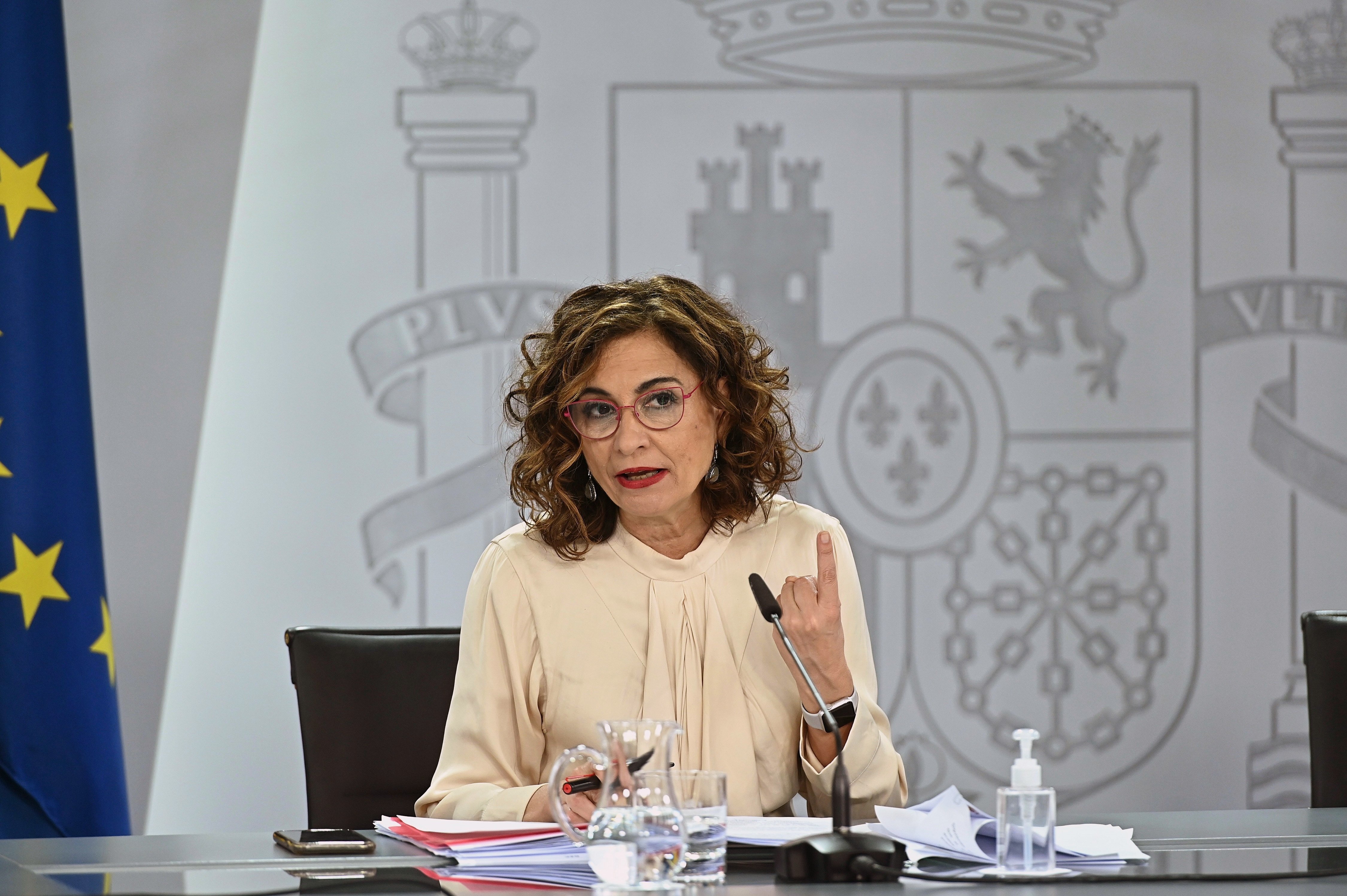There are two narratives fighting it out in Spanish politics this week. On the one hand, the letter published by the jailed Oriol Junqueras, endorsing the pardons of the pro-independence leaders now assumed by the Pedro Sánchez government, and making a commitment to seeking a solution through dialogue. At the antipodes of this, the triple right-wing alliance of PP, Vox and Cs, building up momentum against any clemency measure before they gather in Madrid's Plaza de Colón on Sunday. In this context, the talk from the Moncloa government palace is about the "gesture" of the Catalan Republican Left leader, to justify their decision. But with five days until the ultra rally, government spokesperson María Jesús Montero also wanted to address those Spaniards who look on the pardons with reservations. "As a country we have the right to turn the page," she said. She reiterated that the executive's plan is "within limits". And she argued that the alternative, doing nothing, is exactly what led to this situation.
At several times during the press conference after today's Spanish cabinet meeting, the minister-spokesperson addressed a message specifically to those who "endure with concern and suffering" both what the events in Catalonia of autumn 2017 and the pardons of the political prisoners. Montero emphasized that "the government is no stranger to these feelings", but also defended that "it makes no sense to allow the wound" - between Catalan and Spanish society - to "keep bleeding". And she insisted: "We are aware that many Spaniards will find it difficult to think that it is really appropriate to take a step in the direction of rapprochement and forgiveness."
María Jesús Montero called on Spaniards who have "reservations or doubts" to "trust in the capacity for dialogue" of this government, unlike the previous one, which led to the conflict. To convey the commitment to calming the waters, the Socialist leader promised "strong steps" to resolve the political conflict, but all "within the limits that everyone knows". A Catalan referendum on independence does not exist within these "limits that everyone knows", as she made clear in response to questions from journalists.
She put a special emphasis on differentiating the coalition government's strategy from that of the Mariano Rajoy executive, whose inaction increased the decibel level and precipitated events. "That will not happen with this government, because it ensures compliance with the law, so that none of the situations that occurred with the PP government will occur," she said. She also contrasted this with the current attitude of the right-wing opposition, which "seems to feel comfortable in a situation of confrontation that some pro-independence parties foster."
The calendar ahead will lead to a meeting between prime minister Pedro Sánchez and Catalan president Pere Aragonès at the Moncloa palace, as required by protocol. The date is not yet known, due to the Socialist leader's international agenda, but will most likely take place before the pardons are granted, an event expected in late June or early July. As for the dialogue table, the central executive wants to reactivate it "as soon as possible", when so requested by the Catalan leadership.
From the Moncloa they reiterate their message: “The government has an obligation to do what is best, and we believe that the best that can happen is that we leave behind this episode and work for the re-encounter of effective ties between Catalans, and between Catalonia and Spain and we are committed to dialogue as an opportunity to resolve conflicts in the most democratic and civilized way possible ”.
Letter has a "cost" for Junqueras
The letter that Oriol Junqueras published yesterday was the focus of many of the questions in the post-cabinet press conference. Spanish government sources admit that this is a gesture that "has a cost" for the ERC leader himself, and that they value it very positively because it is "going in the right direction". In the Moncloa, however, there is some concern about the pressure that both Junts and the CUP may exert to maintain the unilateral path. As for the costs of their own action, they assert that the cost of doing nothing is higher.

